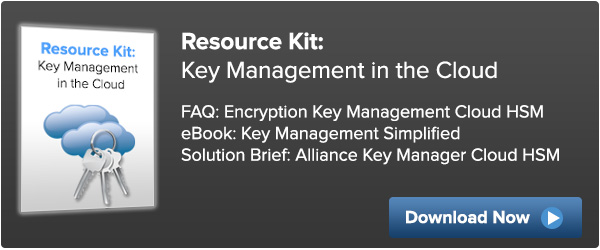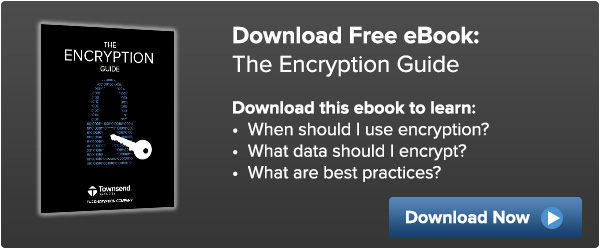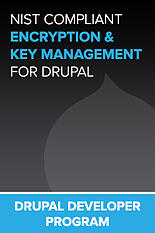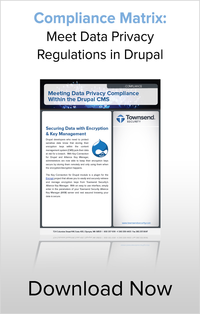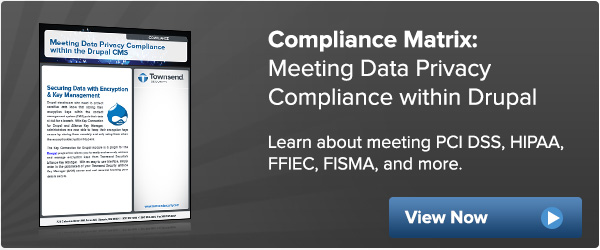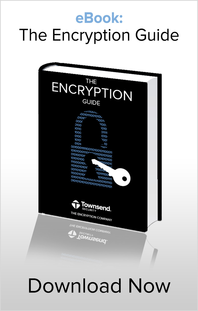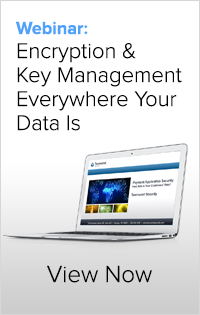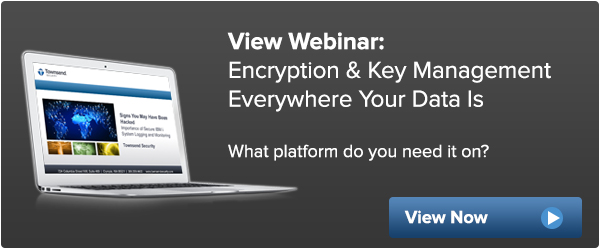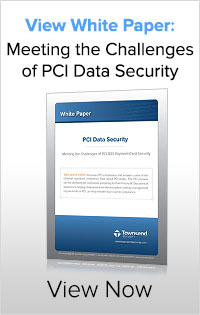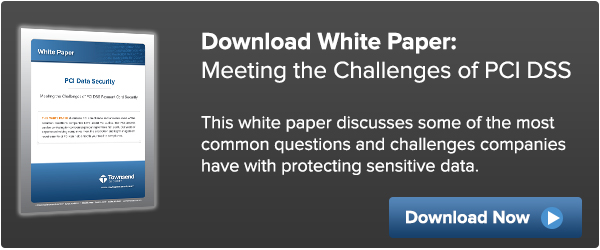Encryption and Key Management Can Provide Data Security in the Cloud

Data security is frequently brought up as one of the biggest concerns of moving to the cloud. According to a recent American Institute of CPA’s survey, weighing in at over 63%, the top barrier to adopting or expanding cloud solutions are security concerns. Whether you are looking for a cloud database solution, or moving other sensitive business data to the cloud, choosing your cloud provider will be a critical decision. After all, not all cloud security providers or cloud security solutions are created equal.
If you’re thinking of moving some or all of your sensitive data to the cloud, we’ve compiled a handy list of questions to help you select the right security solutions for your business. Remember every provider is different, so what might be right for one company might not be the best solution for another. It can seem like a daunting process, but as long as you do your research then you’ll be on the right track!
-
If I have my sensitive data stored in the cloud, am I responsible if my cloud provider has a data breach?
The short answer is yes you are.
When you have sensitive data and are moving it into a cloud environment you are still ultimately responsible for protecting that data. This can be confusing because cloud vendors make a lot of statements about encryption and compliance, however you are responsible for your overall data protection strategy. Data security is a shared responsibility in the sense that it is the cloud providers network, datacenter, and hardware and you bring the applications, operating system, and data. You are fully responsible for that data. You are also responsible for making sure the cloud provider can back up their security claims by requiring to see specific written compliance reports such as a SOC 3 audit statement, annual security assessment, and a letter of attestation by a QSA auditor. -
Which compliance regulations apply to my business?
In addition to the 4 listed below, there are also many state laws and regulations that govern security best practices. It is your responsibility to know which ones apply to your company (and which ones apply to your cloud provider location).
PCI Data Security Standard (PCI DSS) applies to anyone, public or private, who take credit cards for payment. Primary account numbers (PAN) are specifically addressed.
HIPAA/HITECH Act requires the medical segment (and any business associate) provide data protection for protected health information (PHI) of patients.
GLBA/FFIEC applies to the financial industry (bank, credit union, trading organization, credit reporting agency) for protecting all sensitive consumer information.
Sarbanes-Oxley (SOX) applies to public traded companies for sensitive data of personally identifiable information (PII).
In addition to these compliance regulations, the Cloud Security Alliance (CSA) has created the Cloud Controls Matrix (CCM) specifically designed to provide fundamental security principles to guide cloud vendors and to assist prospective cloud customers in assessing the overall security risk of a cloud provider. -
What type of data will be stored in the cloud, and does it need to be encrypted?
If you are storing any sensitive data (PAN, PII, or PHI) that information must be protected and will need to be encrypted both at-rest and in-transit. Sometimes your whole database must be encrypted, other times you can select to encrypt at the column level. Make sure options are available to cover all your critical information. -
Who will have access to the encrypted data? Will my cloud service provider or other cloud tenants be able to access to my information?
Only you should have access to your encrypted data and the encryption keys that protect it. In a multi-tenant environment like the cloud, it is even more important to control access. Depending on the value of the data that you store, and your risk tolerance, you may opt to use a virtual private cloud vs. a multi-tenancy cloud environment to store your most sensitive information. -
Where should I store and manage my encryption keys?
Always use an external Key Manager solution to create, store, manage, and properly rotate your encryption keys. Storing encryption keys in the same database as the encrypted data has always been something to avoid! Moving your data to the cloud still allows you to choose where you store your encryption keys. Hardware Security Module (HSM), Cloud HSM, virtual appliance (VMware), private cloud instance… just as long as they are stored and managed away from the data they protect! - How much control do I retain over my encryption keys?
With using an external encryption key management solution, you should retain complete control over your encryption keys.
These next few questions are encryption & key management solution specific. So if you are comparing solutions be sure to ask each vendor!
-
Do Townsend Security solutions protect data at-rest or in-transit? What type of encryption is used?
Yes. We use industry standard AES Encryption to protect data-at-rest. We also use 128-bit SSL encryption to protect data-in-transit. -
Can Townsend Security solutions grow to meet my business needs? How scalable are the solutions, is there a limit to how many applications I can (connect)?
Yes. We believe you should get a flexible solution that will be able to scale up as your business grows, and not have a limit on how many application connect to it!
-
Are Townsend Security solutions validated by the National Institute of Standards and Technology (NIST)?
Yes. Our solutions are NIST validated and also FIPS 140-2 compliant. -
Does Townsend Security Have a “Test Drive” Offering?
Yes. We always offer a complimentary 30 day evaluation of all of our solutions. Providing a free trial allows you to fully test the concept first, which can help allay fears and and answer any questions before making a commitment. With cloud deployments, you may still need to pay for their implementation services associated with the evaluation period, but in the new world of cloud computing, it is important to look for proof points and results before you make your investment.
Data stored in the cloud can be as secure or accessible as you make it. It is up to each and every cloud user to assess their business risk and uphold an expected standard of security.
It is ultimately your responsibility to make sure your data security plan meets compliance regulations. Make sure you have a strong defense in depth strategy in place and are using industry standard encryption and proper key management to protect your data wherever it resides. Learn more by downloading our Resource Kit on Key Management in the Cloud:
